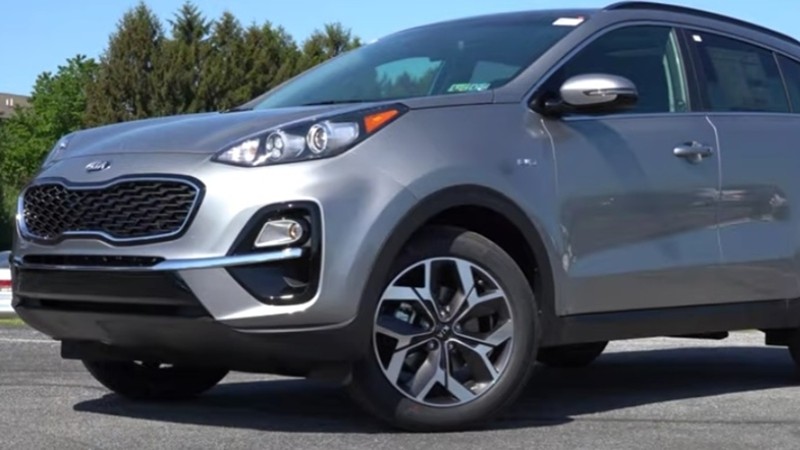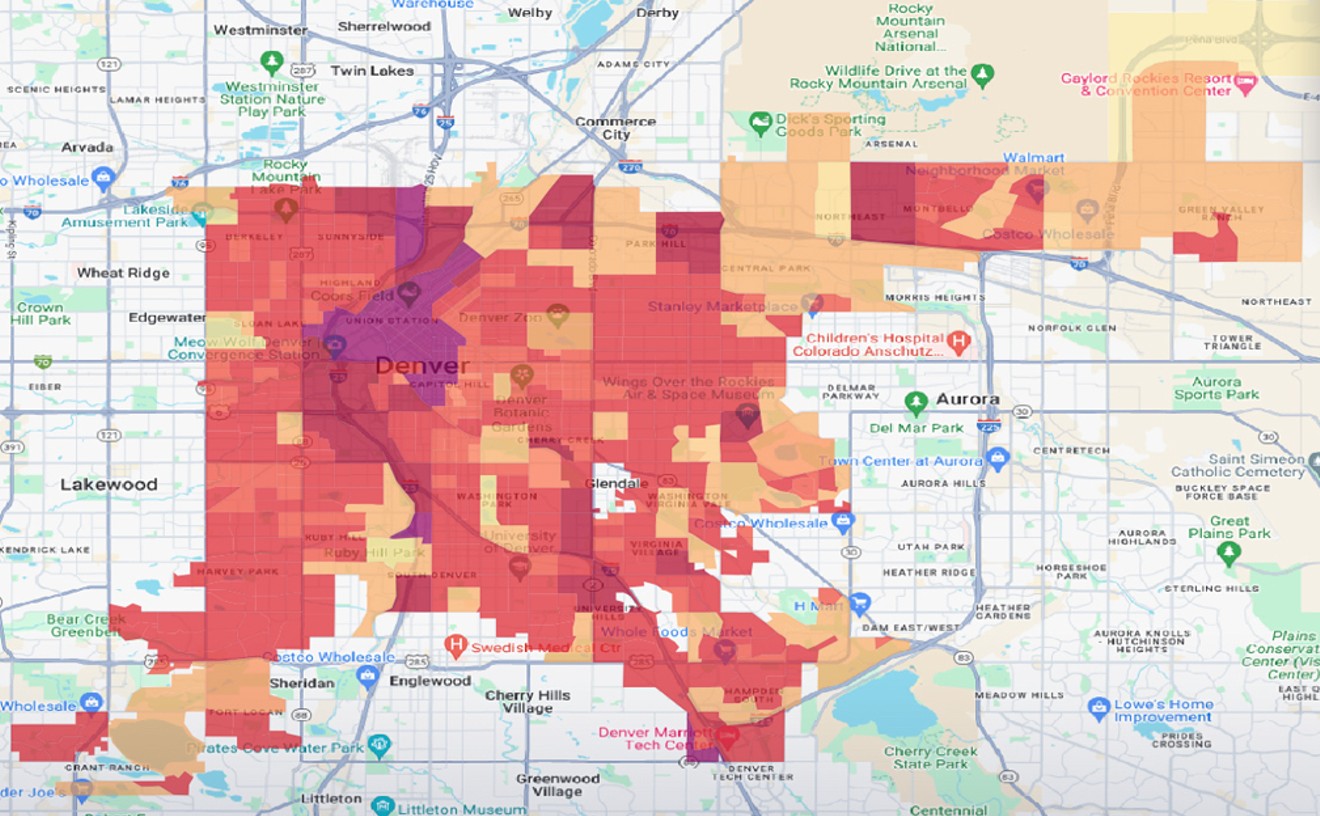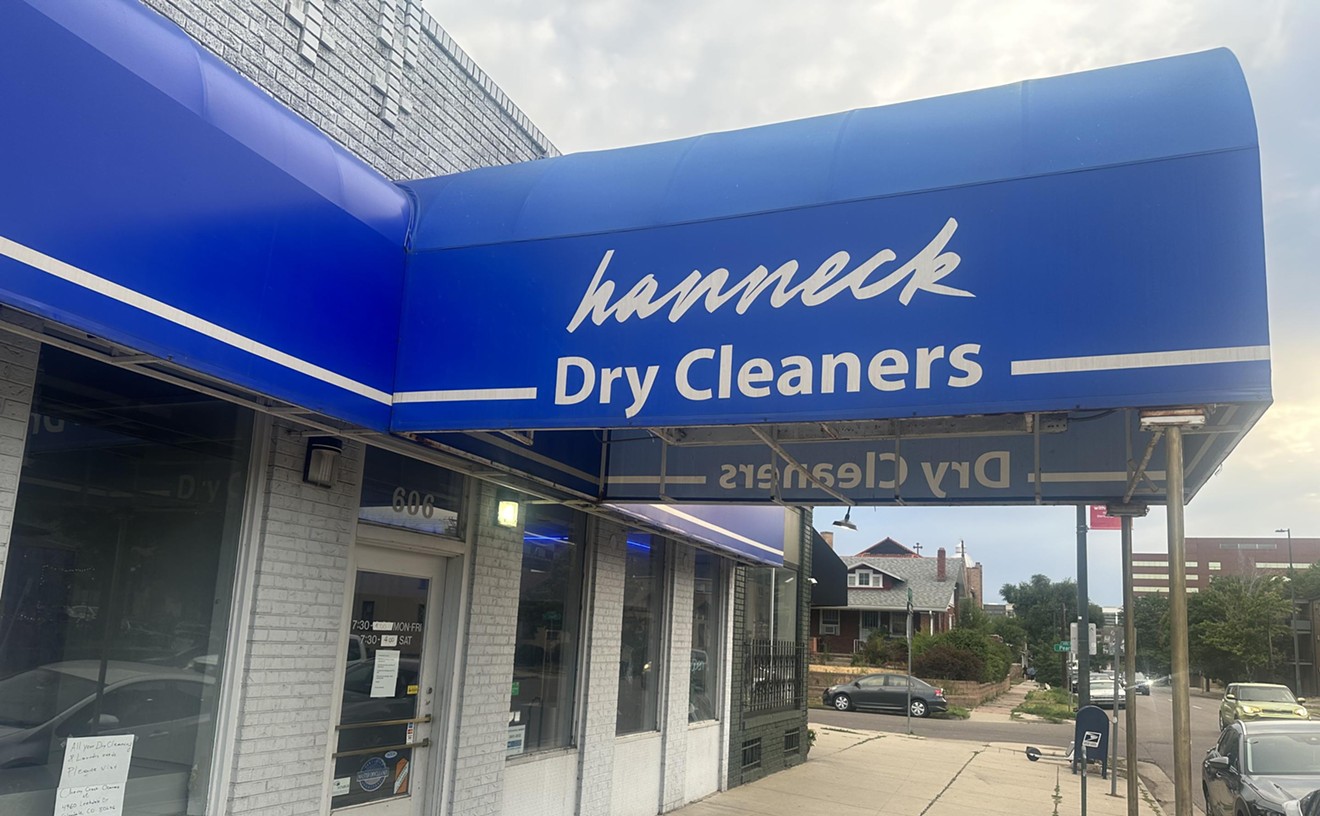The number of stolen cars in the metro area rose by 6 percent during the first nine months of 2022 over the same period in 2021, owing largely to sizable bumps in Denver and Arapahoe counties; thefts actually declined in Adams, Broomfield, Douglas and Jefferson counties. And across the state, 8 percent more cars were swiped statewide from January 1 to September 30 than during the same period a year earlier.
This graphic provides the details:
Another chart focuses in on metro Denver. The car theft totals for January through September were calculated at 9,639 and 13,723 in 2019 and 2020, respectively. But they rose to 20,393 in 2021 — and in 2022, the nine-month pace exceeded last year's by more than 3,000.
C-MATT also offers month-by-month car theft breakdowns that reveal that the peak so far this year was in February, when an average of more than 100 cars were stolen in the metro area every day.
Here are the grim specifics:
Last month, in a preview of its full report, C-Matt reported the most stolen car makes and models in and near the Mile High City — and the changes in recent years have been profound. "From 2010 to 2020, older model Honda passenger vehicles were consistently two or three of the most popular stolen vehicles in the Denver metro area," the report points out. "Over the past two years, Kia and Hyundai vehicles (2012-2021 model years) have replaced these vehicles due to the ease of stealing them. In just six months, older model Honda sedans are no longer even listed in the top ten. Newer model Hyundai and Kia vehicles have seven of the top-ten spots, with the remaining vehicles being full-size Ford and GM model trucks."
Here are the top ten targets of thieves in metro Denver, as well as the number taken this year through September 30:
1. Kia SportageThe per capita average of car thefts in metro Denver is 249 per 100,000 residents. But Denver County's rate is much higher — 425 per 100,000. Arapahoe County (at 263) and Adams County (at 260) surpass the average, while Douglas and Broomfield counties fall below.
Number stolen: 467
Years of make/model stolen: 2017-2022
2. Hyundai Tucson
Number stolen: 389
Years of make/model stolen: 2016-2019
3. Hyundai Sonata
Number stolen: 368
Years of make/model stolen: 2013, 2015-2017
4. Chevrolet Silverado
Number stolen: 355
Years of make/model stolen: 2000, 2004-2006
5. Kia Optima
Number stolen: 332
Years of make/model stolen: 2013, 2015
6. Hyundai Elantra
Number stolen: 274
Years of make/model stolen: 2013, 2016-2017
7. Kia Sorento
Number stolen: 199
Years of make/model stolen: 2016-2017, 2019
8. Ford F-250
Number stolen: 163
Years of make/model stolen: 1999, 2002-2004, 2006
9. GMC Sierra
Number stolen: 150
Years of make/model stolen: 2000, 2005
10. Kia Soul
Number stolen: 148
Years of make/model stolen: 2014-2016, 2018
According to C-MATT, law enforcement agencies in the Denver area recover approximately 82 percent of stolen vehicles within thirty days. But the estimated impact of the thefts remains enormous, ranging from just shy of $2.5 million for the 272 thefts in Broomfield County to more than $86 million for the 9,420 taken in Denver.
And there are still three months left to count in 2022.















